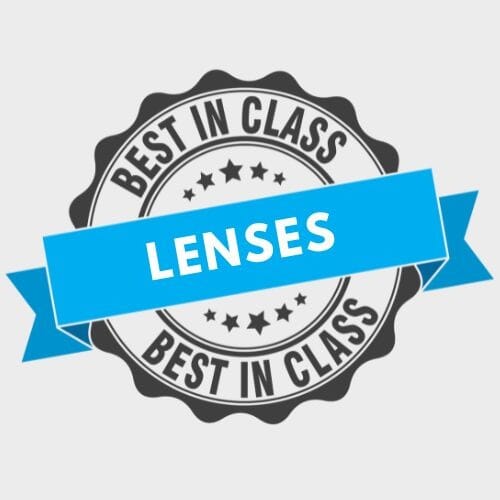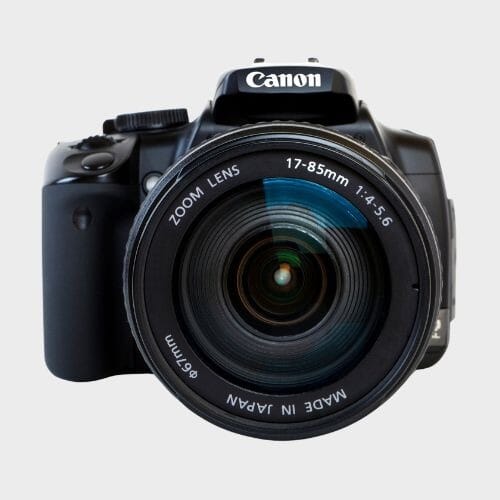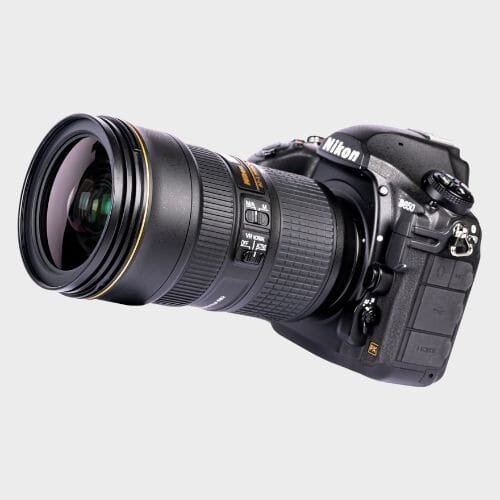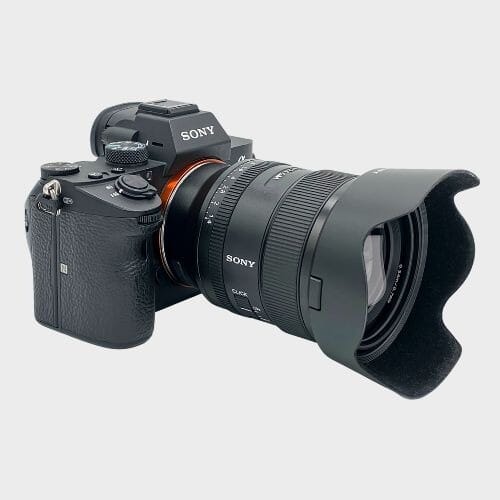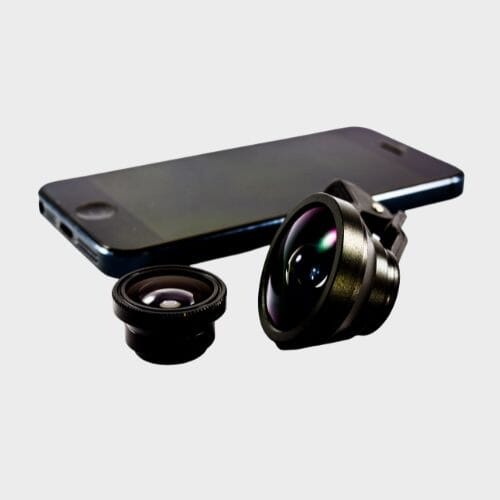Camera Lenses Category
Latest Lenses Posts
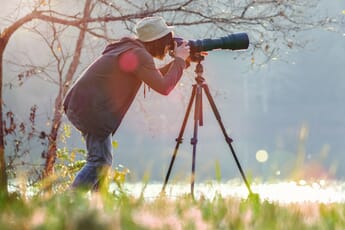 Telephoto Lens Photography: Capturing Distance with Clarity and Precision Published in Lenses Explore telephoto lens photography: Capture distant scenes with clarity, master focal lengths, and create stunning images with beautiful background blur.
Telephoto Lens Photography: Capturing Distance with Clarity and Precision Published in Lenses Explore telephoto lens photography: Capture distant scenes with clarity, master focal lengths, and create stunning images with beautiful background blur.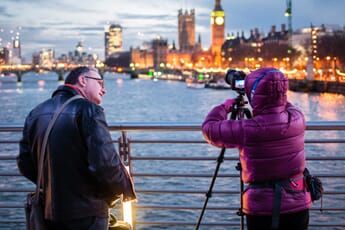 Best Lens for Night Photography: Top Choices for Stellar Nighttime Images Published in Best in Class Lenses Nighttime photography comes down to the quality of the sensor of your camera and your lens. We looked at the 7 best lenses for your camera for night photography.
Best Lens for Night Photography: Top Choices for Stellar Nighttime Images Published in Best in Class Lenses Nighttime photography comes down to the quality of the sensor of your camera and your lens. We looked at the 7 best lenses for your camera for night photography.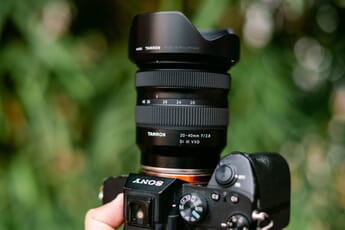 Best Tamron Lens for Sony in 2024: Top Picks for Sharp, Vibrant Photography Published in Best in Class Lenses Explore the best Tamron lenses tailored for Sony mirrorless cameras. Whether you own a full-frame or APS-C model, our guide highlights the top picks for exceptional image quality and versatility.
Best Tamron Lens for Sony in 2024: Top Picks for Sharp, Vibrant Photography Published in Best in Class Lenses Explore the best Tamron lenses tailored for Sony mirrorless cameras. Whether you own a full-frame or APS-C model, our guide highlights the top picks for exceptional image quality and versatility. 8 Best Lenses for Android Phones for More Flexible Shooting Published in Smartphone Lenses Improve your mobile photography with the best lenses for Android phones! Shoot macro to wide angle on your phone with ease.
8 Best Lenses for Android Phones for More Flexible Shooting Published in Smartphone Lenses Improve your mobile photography with the best lenses for Android phones! Shoot macro to wide angle on your phone with ease.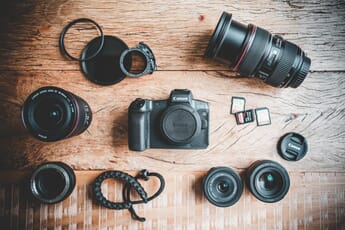 The 10 Sharpest Lenses for Canon Cameras in 2024 Published in Lenses for Canon Cameras Capture breathtaking images with the sharpest lenses for Canon cameras! We share 10 incredible options for hobbyists and professionals.
The 10 Sharpest Lenses for Canon Cameras in 2024 Published in Lenses for Canon Cameras Capture breathtaking images with the sharpest lenses for Canon cameras! We share 10 incredible options for hobbyists and professionals.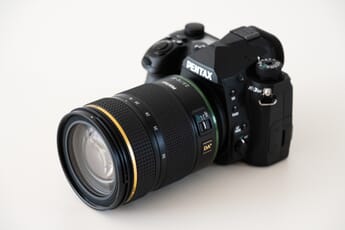 The Best Pentax Lenses: 10 Picks for Tack-Sharp Photos Published in Best in Class Lenses Explore 10 top-rated Pentax lenses in our comprehensive guide! Make an informed decision so you can capture crisp photographs in 2024.
The Best Pentax Lenses: 10 Picks for Tack-Sharp Photos Published in Best in Class Lenses Explore 10 top-rated Pentax lenses in our comprehensive guide! Make an informed decision so you can capture crisp photographs in 2024. The Best iPhone Tele Lenses: 6 Amazing Picks in 2024 Published in Smartphone Lenses We compare the best telephoto lenses for iPhone users, including the perfect tele lenses for portrait, wildlife, street, and sports photography.
The Best iPhone Tele Lenses: 6 Amazing Picks in 2024 Published in Smartphone Lenses We compare the best telephoto lenses for iPhone users, including the perfect tele lenses for portrait, wildlife, street, and sports photography.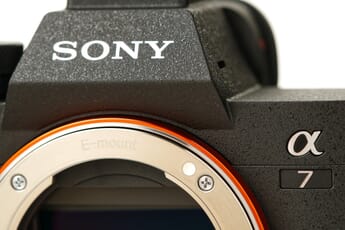 9 Best Wide Angle Sony E-Mount Lenses in 2024 Published in Lenses for Sony Cameras Find the best wide angle Sony E-mount lenses in 2024. We share our top 9 picks for APS-C and full-frame cameras!
9 Best Wide Angle Sony E-Mount Lenses in 2024 Published in Lenses for Sony Cameras Find the best wide angle Sony E-mount lenses in 2024. We share our top 9 picks for APS-C and full-frame cameras! The Best Macro Lenses for Sony: Our Top 6 Picks Published in Lenses for Sony Cameras We compare the six best macro lenses for Sony cameras. Capture beautiful close-up shots of flowers, insects, and more!
The Best Macro Lenses for Sony: Our Top 6 Picks Published in Lenses for Sony Cameras We compare the six best macro lenses for Sony cameras. Capture beautiful close-up shots of flowers, insects, and more!Popular Across Lens Categories
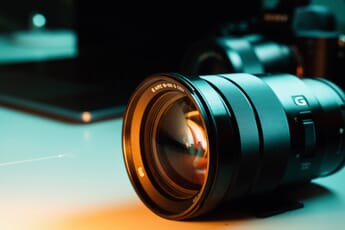 11 Best Lenses for the Sony ZV-E10 (in 2024) Updated in Best in Class Lenses Find the best lenses for the Sony ZV-E10. We include a range of wide-angle, standard, and telephoto options.
11 Best Lenses for the Sony ZV-E10 (in 2024) Updated in Best in Class Lenses Find the best lenses for the Sony ZV-E10. We include a range of wide-angle, standard, and telephoto options.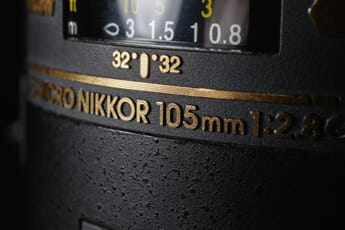 Best Macro Lenses for Nikon (10 Top Picks in 2024) Updated in Lenses for Nikon Cameras The 10 best macro lenses for Nikon cameras in 2024. Options for all budgets and experience levels.
Best Macro Lenses for Nikon (10 Top Picks in 2024) Updated in Lenses for Nikon Cameras The 10 best macro lenses for Nikon cameras in 2024. Options for all budgets and experience levels.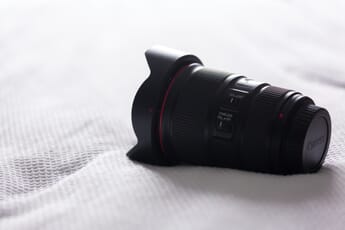 10 Best Macro Lenses for Canon Cameras in 2024 Updated in Lenses for Canon Cameras Comparing the best macro lenses for Canon cameras available in 2024. We review an array of options for DSLR, EOS R, and EOS M cameras.
10 Best Macro Lenses for Canon Cameras in 2024 Updated in Lenses for Canon Cameras Comparing the best macro lenses for Canon cameras available in 2024. We review an array of options for DSLR, EOS R, and EOS M cameras.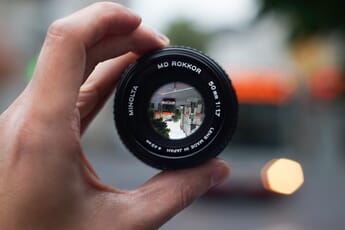 The Best Minolta Lenses You Can Buy in 2024 Updated in Best in Class Lenses Are you looking for a Minolta lens? Whether it's for an old camera or one of Sony's mirrorless systems, discover the best Minolta lenses now!
The Best Minolta Lenses You Can Buy in 2024 Updated in Best in Class Lenses Are you looking for a Minolta lens? Whether it's for an old camera or one of Sony's mirrorless systems, discover the best Minolta lenses now!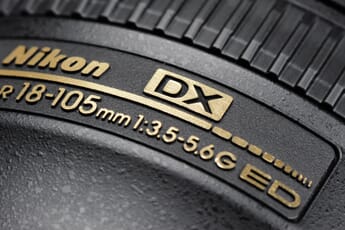 Best Nikon DX Camera Lenses Updated in Lenses for Nikon Cameras The 10 lenses for the Nikon DX. Discover the best Nikon, Sigma, and Tamron lenses for Nikon DX (full-frame) cameras in 2024.
Best Nikon DX Camera Lenses Updated in Lenses for Nikon Cameras The 10 lenses for the Nikon DX. Discover the best Nikon, Sigma, and Tamron lenses for Nikon DX (full-frame) cameras in 2024.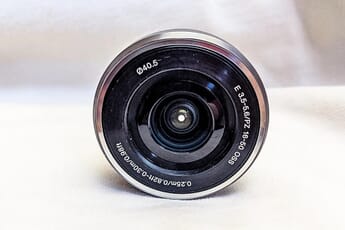 Review of the Sony E 16-50mm f/3.5-5.6 OSS: A Mixed Bag for the Price Updated in Lenses for Sony Cameras Discover everything you need to know about the Sony 16-50mm f/3.5-5.6: How it performs, what you can use it for, and who should buy it.
Review of the Sony E 16-50mm f/3.5-5.6 OSS: A Mixed Bag for the Price Updated in Lenses for Sony Cameras Discover everything you need to know about the Sony 16-50mm f/3.5-5.6: How it performs, what you can use it for, and who should buy it.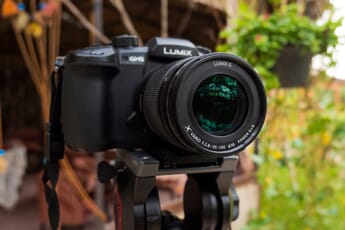 Best Macro Lenses for Micro Four Thirds Cameras: Top Picks for 2024 Updated in Best in Class Lenses Photographers using this system swear by the quality and results. We discuss the best macro lenses for the micro four thirds mount.
Best Macro Lenses for Micro Four Thirds Cameras: Top Picks for 2024 Updated in Best in Class Lenses Photographers using this system swear by the quality and results. We discuss the best macro lenses for the micro four thirds mount.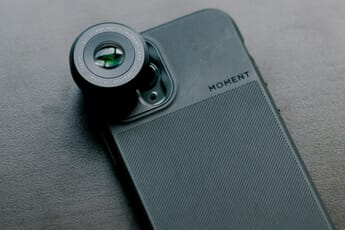 The Best iPhone Macro Lens: An Ultimate Guide Updated in Smartphone Lenses What's the best iPhone macro lens for your needs? This guide features five great macro lenses, and will help you determine which one is best.
The Best iPhone Macro Lens: An Ultimate Guide Updated in Smartphone Lenses What's the best iPhone macro lens for your needs? This guide features five great macro lenses, and will help you determine which one is best.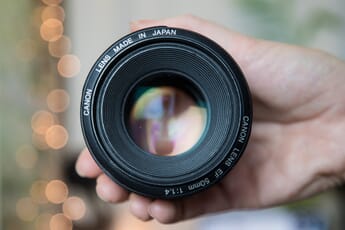 Canon 50mm 1.4 vs 1.8 Comparison Updated in Lenses for Canon Cameras Canon 50mm 1.4 vs 1.8 Comparison – What are the differences between these two popular Canon prime lenses and which is the better choice?
Canon 50mm 1.4 vs 1.8 Comparison Updated in Lenses for Canon Cameras Canon 50mm 1.4 vs 1.8 Comparison – What are the differences between these two popular Canon prime lenses and which is the better choice?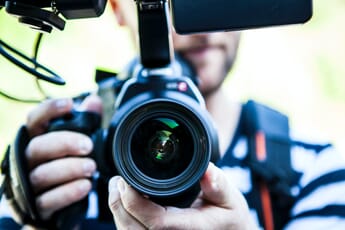 The Best Canon Lenses for Video Making Updated in Lenses for Canon Cameras Finding a video lens can be tricky. Use our Canon video lens guide to pick the perfect product. Includes EF and RF lenses.
The Best Canon Lenses for Video Making Updated in Lenses for Canon Cameras Finding a video lens can be tricky. Use our Canon video lens guide to pick the perfect product. Includes EF and RF lenses.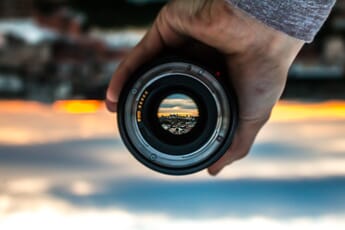 What Lenses Should a Beginner Photographer Have? Updated in Lenses Find the perfect lenses for beginner photographers. We explore essential lens types, including kit lenses and portrait primes.
What Lenses Should a Beginner Photographer Have? Updated in Lenses Find the perfect lenses for beginner photographers. We explore essential lens types, including kit lenses and portrait primes. 10 Best Canon Sports Lenses: Our Top Picks for Stunning Sports Photos Updated in Lenses for Canon Cameras Find the best Canon sports lenses in 2024. Photograph high-energy sporting events in crisp, clear detail.
10 Best Canon Sports Lenses: Our Top Picks for Stunning Sports Photos Updated in Lenses for Canon Cameras Find the best Canon sports lenses in 2024. Photograph high-energy sporting events in crisp, clear detail.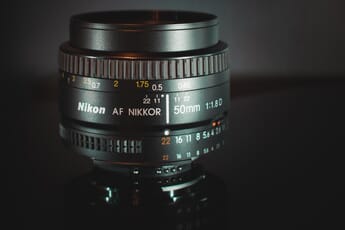 The Best 50mm Lenses for Nikon Cameras Updated in Lenses for Nikon Cameras The best 50mm lenses for Nikon: Sharp 50mm prime lenses for your Nikon DSLR can make or break your photo shots. We picked 5 great lenses.
The Best 50mm Lenses for Nikon Cameras Updated in Lenses for Nikon Cameras The best 50mm lenses for Nikon: Sharp 50mm prime lenses for your Nikon DSLR can make or break your photo shots. We picked 5 great lenses.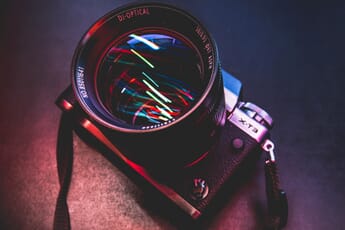 7 Best Fuji Lenses for Street Photography in 2024 Updated in Best in Class Lenses Find the perfect Fuji lens for street photography. We share our top 7 Fujifilm street lenses, including budget and high-end picks.
7 Best Fuji Lenses for Street Photography in 2024 Updated in Best in Class Lenses Find the perfect Fuji lens for street photography. We share our top 7 Fujifilm street lenses, including budget and high-end picks.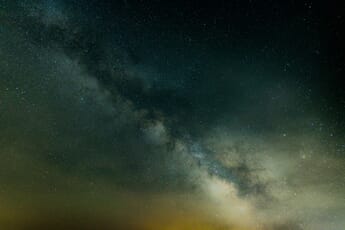 Best Canon Lenses for Astrophotography Updated in Lenses for Canon Cameras Find the best Canon lenses for astrophotography so you can take superb photos of the night sky, planets, and constellations.
Best Canon Lenses for Astrophotography Updated in Lenses for Canon Cameras Find the best Canon lenses for astrophotography so you can take superb photos of the night sky, planets, and constellations. Best Lenses for Interior Photography Updated in Best in Class Lenses We look at the best lenses for interior photography so you can take exceptional real estate photos and interior design photos.
Best Lenses for Interior Photography Updated in Best in Class Lenses We look at the best lenses for interior photography so you can take exceptional real estate photos and interior design photos.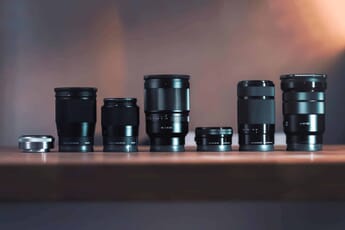 Camera Lens Guide: Everything You Need to Know (DSLR & Mirrorless) Updated in Lenses Befor you buy your next DSLR lens, make sure to read our in-depth DSLR buying guide. Understand the best lens specs depending on your needs.
Camera Lens Guide: Everything You Need to Know (DSLR & Mirrorless) Updated in Lenses Befor you buy your next DSLR lens, make sure to read our in-depth DSLR buying guide. Understand the best lens specs depending on your needs. 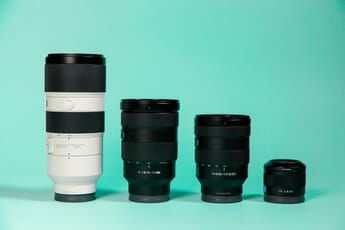 10 Best Sony Portrait Lenses (in 2024) Updated in Lenses for Sony Cameras See the best Sony portrait lenses for beginners and experienced photographers. Capture beautifully rendered portrait photos.
10 Best Sony Portrait Lenses (in 2024) Updated in Lenses for Sony Cameras See the best Sony portrait lenses for beginners and experienced photographers. Capture beautifully rendered portrait photos. The Best Lenses for Jewelry Photography in 2024 Updated in Best in Class Lenses We share the top nine lenses for jewelry photography that will get you consistently gorgeous product and portrait shots.
The Best Lenses for Jewelry Photography in 2024 Updated in Best in Class Lenses We share the top nine lenses for jewelry photography that will get you consistently gorgeous product and portrait shots.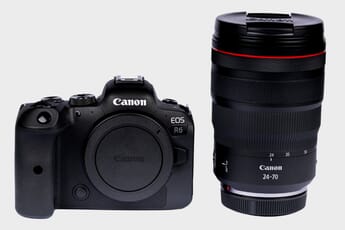 The Best 24-70 Lens for Canon: 4 Great Models for Canon Photographers Updated in Lenses for Canon Cameras Discover the best 24-70 lens for Canon users. Whether you're on a budget or looking for the best of the best, you'll find the perfect lens for your needs!
The Best 24-70 Lens for Canon: 4 Great Models for Canon Photographers Updated in Lenses for Canon Cameras Discover the best 24-70 lens for Canon users. Whether you're on a budget or looking for the best of the best, you'll find the perfect lens for your needs!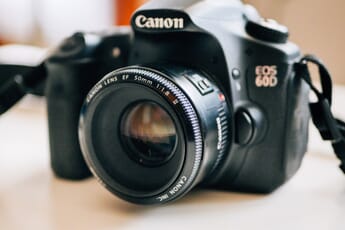 The Best 50mm Lenses for Canon: Top 5 Picks in 2024 Updated in Lenses for Canon Cameras We share the best 50mm lenses for Canon cameras. Capture incredible portraits, event shots, street photos, and more!
The Best 50mm Lenses for Canon: Top 5 Picks in 2024 Updated in Lenses for Canon Cameras We share the best 50mm lenses for Canon cameras. Capture incredible portraits, event shots, street photos, and more!General Lenses Posts
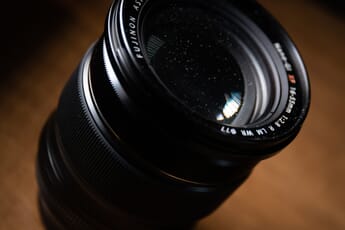 Fujifilm XF 16-55mm f/2.8 Review: An Ultra-Sharp Lens for Serious Photographers Published in Lenses The Fujifilm XF 16-55mm f/2.8 is a powerful lens, but is it worth the price? Learn all about it in this hands-on Fujifilm 16-55 review!
Fujifilm XF 16-55mm f/2.8 Review: An Ultra-Sharp Lens for Serious Photographers Published in Lenses The Fujifilm XF 16-55mm f/2.8 is a powerful lens, but is it worth the price? Learn all about it in this hands-on Fujifilm 16-55 review!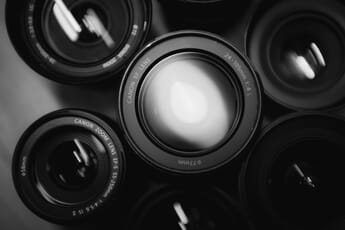 The Best Places to Buy Used Camera Lenses: Top 10 Options Published in Lenses Find the best places to buy used camera lenses in 2024. Includes reputable retailers like MPB, Adorama, and KEH Camera.
The Best Places to Buy Used Camera Lenses: Top 10 Options Published in Lenses Find the best places to buy used camera lenses in 2024. Includes reputable retailers like MPB, Adorama, and KEH Camera.Our Lens Category covers the latest and best camera lenses you can buy in 2025. Make sure to visit our lens sub-categories:
- Best in Class Lenses (14)
- Lenses for Canon Cameras (8)
- Lenses for Nikon Cameras (5)
- Lenses for Sony Cameras (5)
- Smartphone Lenses (3)
Discover Lenses on PhotoWorkout
The Camera Lenses category at PhotoWorkout.com provides expert advice, in-depth guides, and comprehensive reviews for photographers of all levels. Discover the best lenses for your specific needs across a wide range of brands and types. Our Best in Class Lenses category offers reviews of the top lenses available in 2025, highlighting exceptional choices for everything from jewelry photography to concert photographing and more.
If you’re a brand loyalist, we have detailed guides for Canon, Nikon, and Sony, including discussions on the best 50mm lenses for Canon and Nikon, the top macro lenses for Nikon and Sony, and other specialized lens guides.
For the smartphone photographers out there, check out our Smartphone Lenses section, featuring guides such as the best iPhone telephoto lenses and macro lenses available.
Our resourceful articles are frequently updated, ensuring you’ll find the most current information, whether you’re looking for the best lenses for the Sony ZV-E10 or interested in a comprehensive review of the Sony E 16-50mm f/3.5-5.6. We also offer general posts that cover broad topics such as our DSLR Lens Guide, which provides the knowledge you need to make informed lens purchases.
At PhotoWorkout.com, we aim to be your trusted source for all things related to camera lenses. Visit us regularly for the latest updates and insights from the world of photography.

